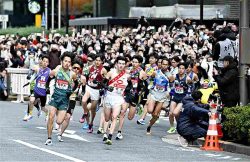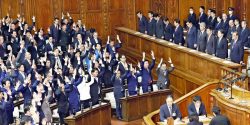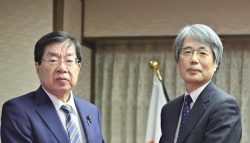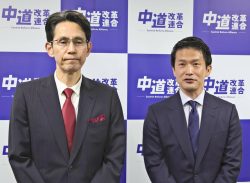Fighting Poverty Is Harder Than Fighting Gravity; Nelson’s 1977 Observation Still Resonates Today
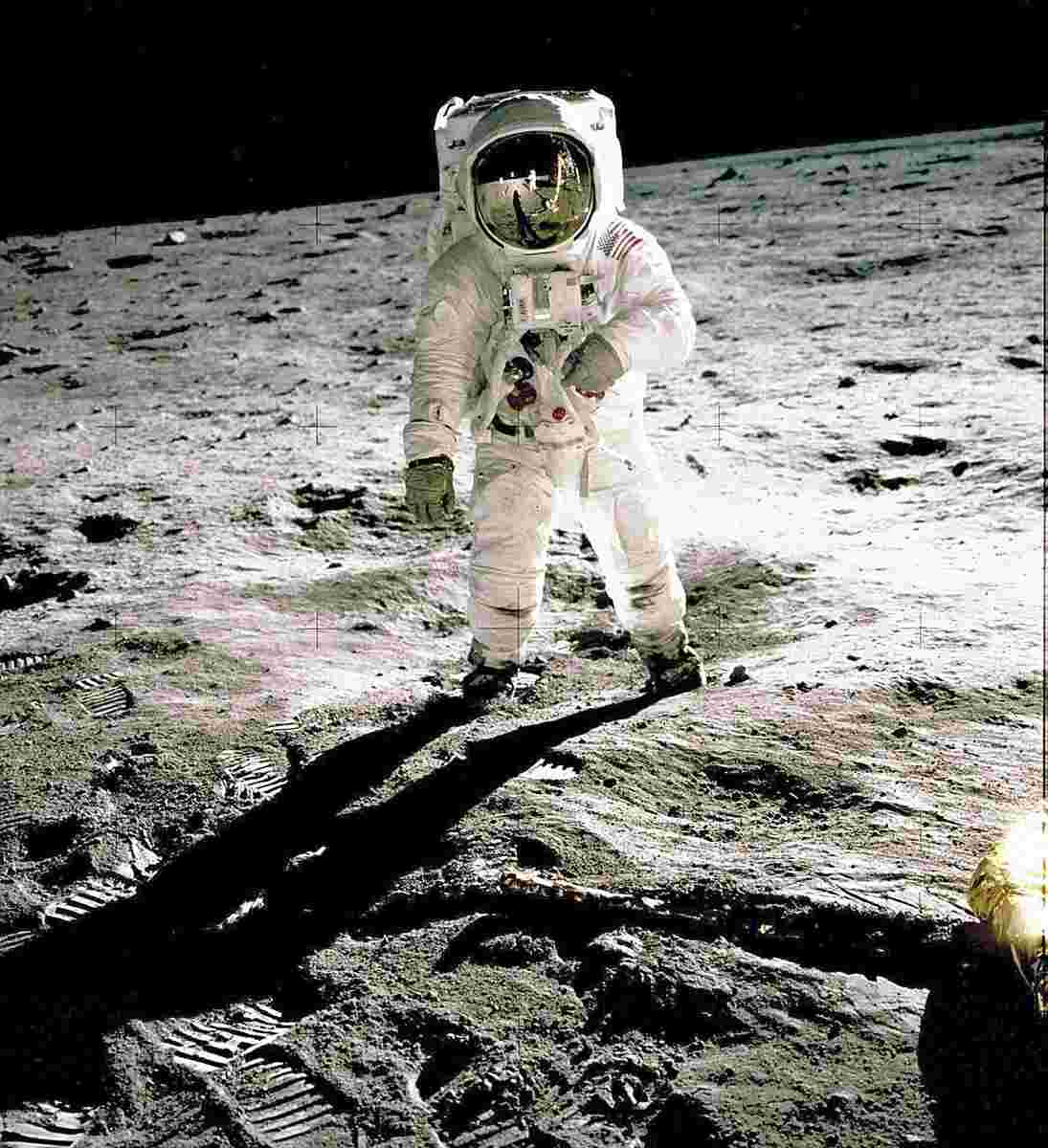
In 1969, Apollo 11 astronauts walked on the moon for the first time.
8:00 JST, November 23, 2024
It was a mission so difficult that many regarded its success as a dream come true. It was the U.S. Apollo program, which sent humans to the moon more than half a century ago. It was so momentous that there is even a conspiracy theory in the United States among those who refuse to believe it was possible, claiming that the Apollo mission was a hoax.
Now the United States is taking up the challenge again. Its new effort, called the Artemis program, aims to land astronauts on the moon in 2026. In April of this year, Japan and the United States agreed that Japanese astronauts too would be offered the opportunity to land on the moon, with Japan cooperating in the development of a lunar rover and other projects. Japan aims to land its first astronaut in 2028, which would make it the second country ever to land an astronaut on the moon, after the United States.
In October, two new astronauts were officially certified by JAXA. They could be the first Japanese to land on the moon. One of them, Makoto Suwa, said at a press conference, “I think that aiming for the moon has scientific significance, and that in itself is exciting.”
Hearing such news reminded me of the 1977 book “The Moon and the Ghetto” by American economist Richard R. Nelson. The book asks why a country with enough science and technology to send humans to the moon cannot solve problems such as discrimination and poverty.
One of the reasons, he points out, is that making policies to eliminate social disparities and people’s prejudices may be much more difficult than building a spaceship to go to the moon. Does this mean that policies that deal with people’s hearts and minds are more difficult than space development, which is based on the laws of physics?
Akira Goto, a professor emeritus at the University of Tokyo who translated the book into Japanese, said, “With the striking words ‘moon and ghetto,’ the book reveals the distortions in society. It does not present a clear-cut solution, but it has triggered a debate.”
Nelson also points out a difficulty of social problems, which is the lack of sufficient know-how to solve them.
Compare, for example, medicine and education. In medicine, effectiveness can be verified experimentally, sometimes using animals, and experiments can be repeated and improved. In education, however, the effects vary depending on who is teaching and what kind of students they have. It is not realistic to repeat “experiments” on children and create a universal manual for education. According to a 2008 article coauthored by Nelson in the journal Nature, different approaches to improved teaching remain strongly context-dependent, and no one approach confers an obvious advantage over others in all circumstances.
In the natural sciences, where know-how has been accumulated, once a goal is set, progress can be made, even if through trial and error. New discoveries made possible by science and technology attract attention and generate further impetus. However, we should not forget that even with the development of science and technology, there are still social problems that go unaddressed. “The Moon and the Ghetto” poses a grand challenge to modern society that is still relevant nearly half a century later.
Political Pulse appears every Saturday.
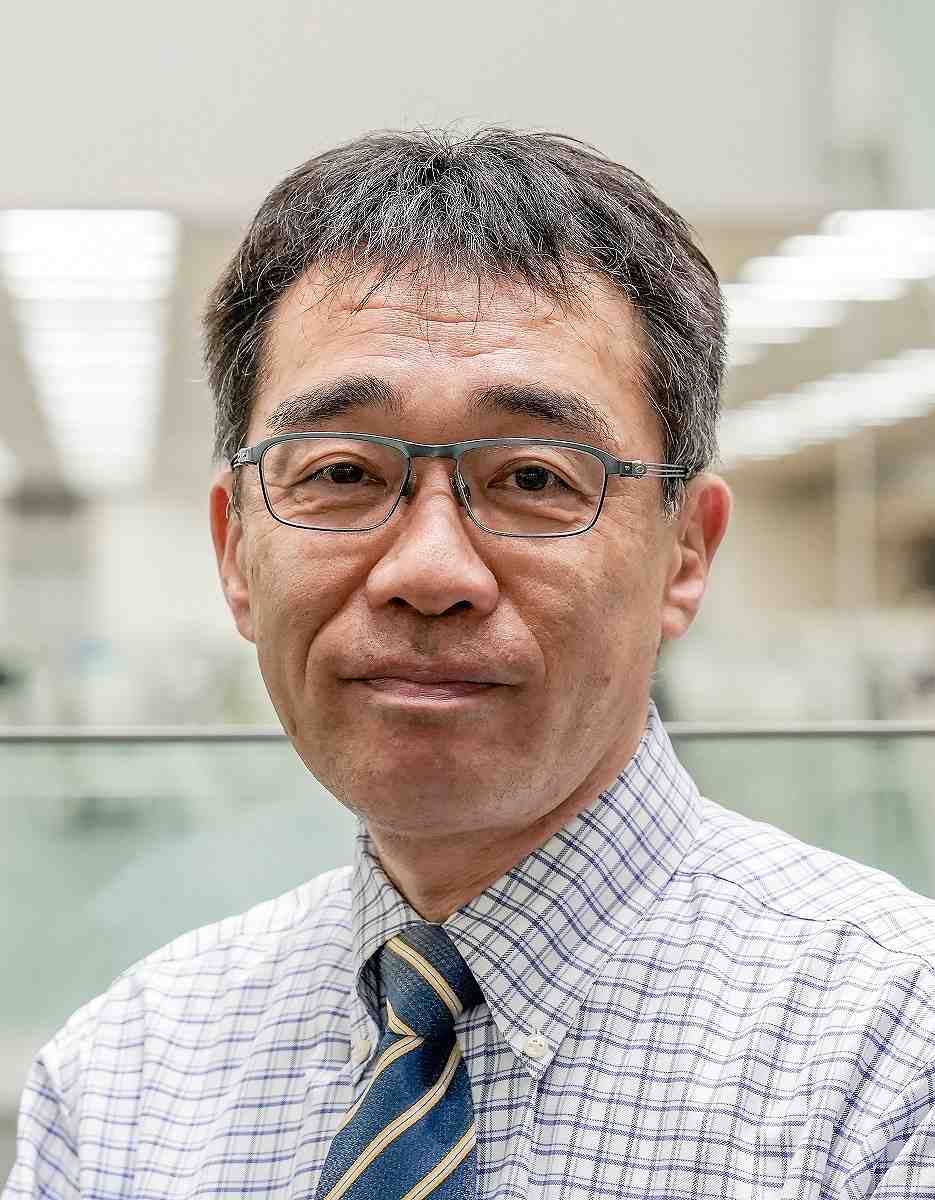
Makoto Mitsui
Makoto Mitsui is a Senior Research Fellow at Yomiuri Research Institute.
Top Articles in Editorial & Columns
-

40 Million Foreign Visitors to Japan: Urgent Measures Should Be Implemented to Tackle Overtourism
-

University of Tokyo Professor Arrested: Serious Lack of Ethical Sense, Failure of Institutional Governance
-

Policy Measures on Foreign Nationals: How Should Stricter Regulations and Coexistence Be Balanced?
-

Greenland: U.S. Territorial Ambitions Are Anachronistic
-

China Provoked Takaichi into Risky Move of Dissolving House of Representatives, But It’s a Gamble She Just Might Win
JN ACCESS RANKING
-

Japan Institute to Use Domestic Commercial Optical Lattice Clock to Set Japan Standard Time
-

Israeli Ambassador to Japan Speaks about Japan’s Role in the Reconstruction of Gaza
-

Man Infected with Measles May Have Come in Contact with Many People in Tokyo, Went to Store, Restaurant Around When Symptoms Emerged
-

China Eyes Rare Earth Foothold in Malaysia to Maintain Dominance, Counter Japan, U.S.
-

Australian Woman Dies After Mishap on Ski Lift in Nagano Prefecture



